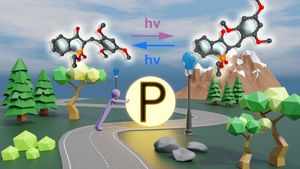The Indonesian government is taking significant steps to bolster the quality of its education system by partnering with international educational institutions. Recently, Coordinated Minister for Economic Affairs Airlangga Hartarto met with Professor Helen Bailey, the Vice President of Queen Mary University of London (QMUL), to discuss cooperative efforts aimed at enhancing educational standards throughout the nation.
This meeting, held on February 18, 2025, at the Ministry of Economic Affairs' office in Jakarta, focused on potential collaboration between the Indonesian government and QMUL. A key element of the discussion was the plan to establish a branch campus of QMUL within the Special Economic Zone (KEK) Singhasari, located in Malang, East Java. Hartarto emphasized the importance of this initiative, stating, “One of the main focuses of the government at this time is developing education in the fields of STEM - science, technology, engineering, and mathematics. This is important to support Indonesia’s economy transformation based on knowledge and innovation.”
Bailey echoed this sentiment, indicating the collaboration would not only be beneficial to the government but also to private higher education institutions, all aimed at enhancing the nation's educational quality. She stated, “This collaboration is expected to contribute to the development of higher education and research in Indonesia.” This partnership reflects the commitment to create a more innovational ecosystem for education, aligning closely with the Indonesian government's broader goals.
One of the significant challenges facing the new cooperation is to address the tuition fee concerns, particularly with the potential increase of UKT (Uang Kuliah Tunggal), which could impact student access to higher education. Newly appointed Brian Yuliarto at Kemendiktisaintek has been tasked with managing this situation, ensuring affordability and maintaining education accessibility as the government seeks to expand and improve educational offerings.
The overarching vision behind these initiatives is part of Indonesia’s long-term strategy, known as Vision 2045, which aims to transform the country and position it as a developed nation with superior human capital. Indonesia seeks to focus on enhancing access to quality education, improving educational relevance, and increasing competitiveness.
With these collaborative efforts between international institutions like QMUL and the Indonesian government, there is optimism about the potential advancements in the quality of education available to students. The emphasis on STEM fields is particularly pertinent, as Indonesia looks to prepare its workforce for the demands of the global economy.
The proposed establishment of the QMUL branch campus is not merely about physical presence; it is about integrating global educational standards with local needs. The commitment to align the curricula closely with the requirements of modern industries and innovations is fundamental to this partnership. Hartarto has requested QMUL to maintain this focus, ensuring graduates are equipped to tackle modern challenges when they enter the workforce.
These actions highlight the importance the Indonesian government places on forming strong educational partnerships and enhancing the educational environment. With international collaboration, it is anticipated there will be both immediate and long-term benefits for Indonesia's academic institutions and its population.
Overall, the Indonesian government is fostering educational initiatives to not only modernize its academic system but to also provide accessible pathways for learners from various backgrounds. The culmination of these efforts aims to create skilled professionals ready to contribute positively to society, supporting national goals and aspirations.
The focus on education as a pillar for economic and social development is central to Indonesia's goals as it approaches 2045. The partnership with QMUL stands as a significant step forward, promising transformative impacts on education and the workforce.



